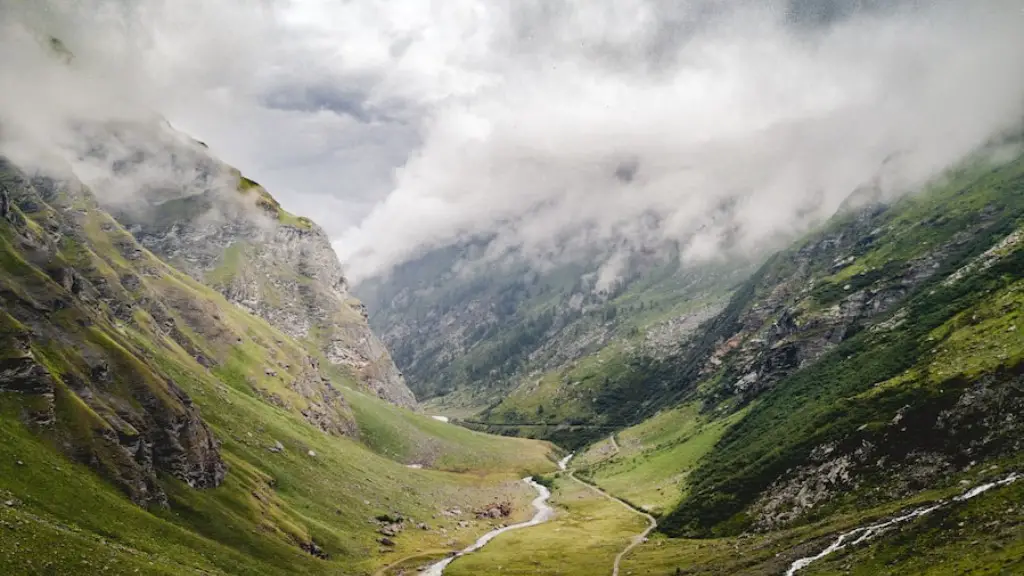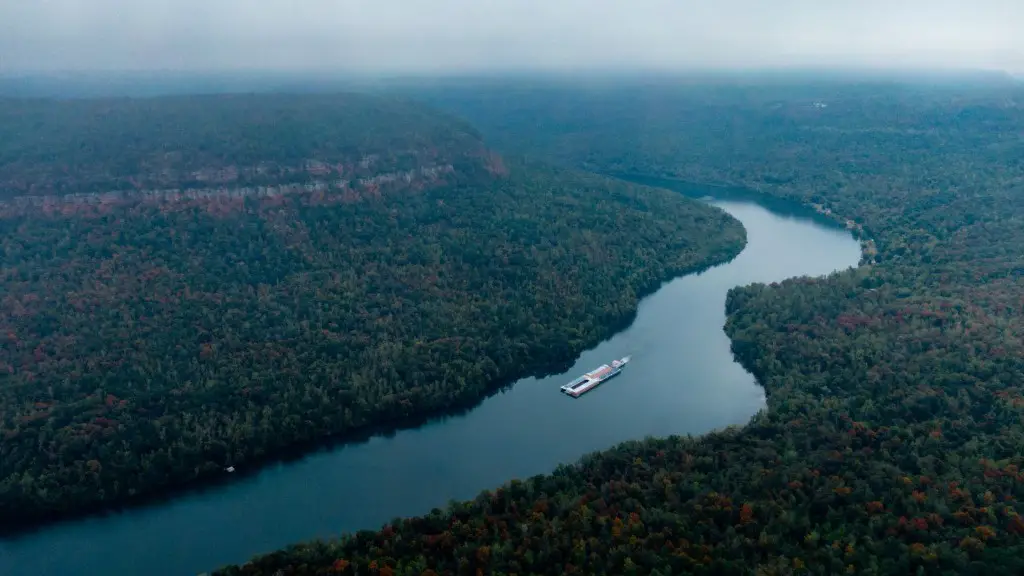Economic Impact
The Nile River was the focal point of Ancient Egyptian society, forming the lifeline of economic growth and prosperity. It served as the main form of food production, providing resources for agricultural production and fishing. Additionally, the river acted as an important trading route between Egypt, Sudan, and other countries of the Middle East. This enabled traders to transport goods such as precious metals, ivory and cotton in bulk. This created a vibrant economy around the Nile, providing work for locals and boosting the region’s growth.
The importance of the artificial waterways, canals, and dikes that the Egyptians built in order to manage the rivers flow and high level of flooding cannot be understated. Their engineering genius enabled them to harness the waters power and make it work for them; providing an abundance of crops, transport and resources.
Political Impact
The importance of the Nile as a natural boundary and protector of Ancient Egypt’s borders was vital. The fact that the overwhelming majority of the population and economic resources were located concentrated along its banks meant that it was easier to defend these territories from foreign invasion. Access to the Nile was controlled by the Egyptian government, allowing them to build a stable and unified empire.
It is no coincidence that the three major cities of Ancient Egypt, Memphis, Thebes and Alexandria were all situated along the Nile. These cities formed the centre of Egypt’s civilisations and were home to the most influential political and religious figures. Egypt’s political power was also further enhanced by their control of several strategic military fortifications located along the river.
Religious Impact
The Nile and its life-giving waters were seen as an essential part of Ancient Egyptian religion. The annual flooding of the river was seen as the gods blessing the people of Egypt. The flooding deposited fertile silt onto the banks of the river, allowing for an abundance of crops and food. Ancient Egyptians saw their land as the “Land of the Corn”, for this reason.
The gods that the Ancient Egyptians worshipped often had associations with the river, adding further importance and symbolism to it. For example, the god Hapy was the god of the annual flood and Osiris was the lord of the regeneration of the river. Such beliefs and associations meant that the river had a profound impact on Ancient Egyptian life, to the point where it was almost seen as a deity.
Social Impact
As the Nile provided an abundance of resources and economic benefits, it had a significant influence on Ancient Egyptian life. Not only did it provide a sustainable food source, but it also enabled people to trade and communicate, fostering an understanding and cooperation between communities. One of the most visible impacts of the Nile can be seen in the architecture. The Ancient Egyptians built their homes, temples, tombs and monuments following the same principles of the flooding; meaning that they had to build with the level and flow of the river in mind.
The Nile also had a profound impact on Ancient Egyptian culture and beliefs. As communities traveled and communicated along the river, new ideas and traditions were spread and shared. This had a huge effect on Ancient Egyptian life and culture, contributing to the development of things like literature, the arts, and science.
Environmental Impact
The environmental impact of the Nile was mostly positive, as it provided an abundance of resources and supported a thriving eco-system. The river was home to many different species of fish, mammals and birds. This helped to create a biodiversity that was essential for the well-being of the region.
The Nile also formed part natural landscape and barrier that prevented other forms of wildlife from entering Ancient Egyptian lands. This was especially beneficial, as it allowed Ancient Egyptian society to flourish without the worry of natural predators and diseases.
Appreciation for the Nile
The Ancient Egyptians developed a great respect and appreciation for the Nile. For them, it was more than just a river; it was almost a religious and cultural icon. Its sheer symbolic importance meant that the Ancient Egyptians were very careful in how they treated the river, for fear of damaging its precious life-giving waters.
In short, the importance of the Nile to Ancient Egyptian society cannot be understated. It provided a source of food, resources, and energy. It acted as a way of communicating, trading and traveling. Most importantly, it was sacred to the Ancient Egyptians, imbued with great spiritual meaning and symbolism.
Conservation Efforts
In recent years, the importance of conserving the Nile has become increasingly apparent. In order to ensure that its rich biodiversity, cultural significance and natural resources remain for generations to come, numerous conservation initiatives have been set up in order to protect and preserve the river.
This includes the Nile Basin Initiative (NBI), a collaborative effort between eleven Nile Basin countries to ensure cooperation in the management and use of the Nile waters. There are also numerous local conservation groups and initiatives, such as Nile Alive involved in the preservation of the river and its resources.
Impact on Developing Nations
The economic, political and social benefits that the Nile provides continue to have an important influence on the development of the countries around it. Access to the Nile has enabled many countries to undertake large-scale infrastructure and agricultural projects that would have been impossible without it.
This access to resources and economic opportunities has been especially beneficial for some of the poorest and most vulnerable countries in the region, allowing them to develop much-needed healthcare, education, and employment opportunities.
Future of the Nile
The future of the Nile is uncertain; with its resources threatened by the increasing demands for water. Climate change, drought and overuse of the river’s water have had a massive impact on the quantity and quality of water that is available to those living and working along its banks.
Additionally, the countries that inhabit the Nile region face an uphill battle to ensure that the river is used in a sustainable and equitable way. This involves a delicate balancing act between the needs of the people, conserving the environment and maximizing economic opportunities.
Environmental Policy
To safeguard the river and its resources, many countries have come together to agree on various environmental policies and initiatives. These include things like limiting pollution and over-fishing, introducing sustainable energy sources and encouraging renewable practices.
These policies are essential in ensuring that the Nile can remain a source of life and resources for those who rely on it for food and livelihood, for generations to come. Additionally, the countries of the region are increasingly looking to the international community for support and assistance in keeping the river alive.
Water Distribution
In order for the river to remain a source of life and resources, it is also important to ensure that the water is distributed in a fair and equitable way. This requires that the countries of the region agree upon a plan to allocate resources in a way that benefits all, while avoiding conflict and competition.
To this end, there has been increasing cooperation between each of the countries in the region. This has seen various agreements, projects and initiatives aimed at providing an equitable and sustainable solution for water distribution and management.
International Support
Finally, it is also important to note that many international organizations, such as the United Nations, are also providing support for regional initiatives to preserve the Nile. This includes things like providing funds for research and development projects, as well as technical support for conservation and management initiatives.
Funds and assistance from international organizations can go a long way in ensuring that the Nile remains a source of life and resources for those who rely on it for their livelihood, whilst also maintaining its incredible cultural and symbolic significance.



